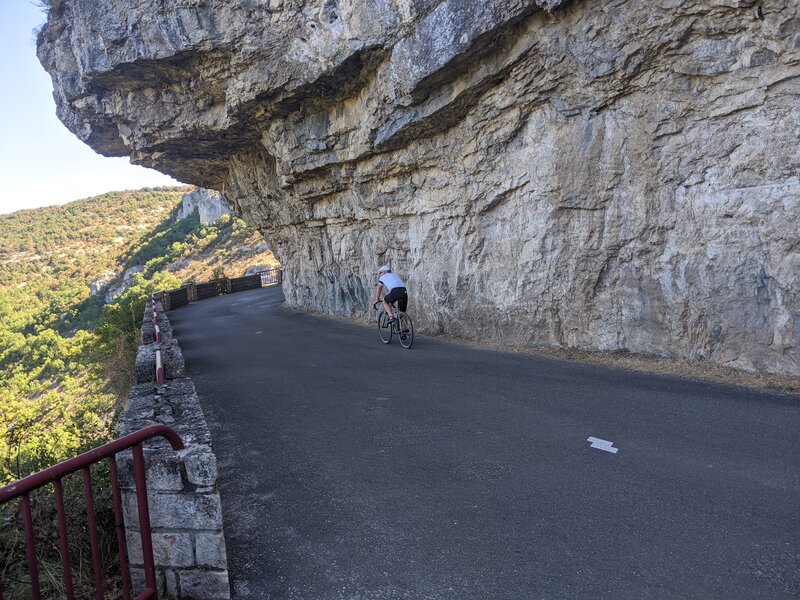Book Review: The Midlife Cyclist by Phil Cavell
I should start by saying I really like The Midlife Cyclist. It’s quirky and has a few issues, but is invaluable for anyone, male or female who wants to make the most of bike riding over the age of 40.
The author, Phil Cavell is co-founder of Cyclefit who are a London based outfit specialising in bike fitting. They’ve been around a long time and have worked with some big names so their credentials are impressive. They also cured my problems with foot pain many years ago, for which I’ll be forever grateful. It means of course that the book is written from the persepective of someone who earns a living solving cyclists’ problems which sometimes grates a little, but that’s where his huge knowledge base comes from and at no point is it hidden, so no problem there. He’s also a lifelong cyclist who raced for many years which makes him relatable (to me) and I guess aspirational to those new to cycling.
It seems almost quaint in 2021 to buy a book. Everything you could possibly want to know is on the internet just a google search away, conveniently available on your phone. But one of the defining issues of our age is misinformation. Never has there been so much information available to us, but never has it been so difficult to sort the good stuff from the nonsense. Most of us don’t have the time, skills or contacts to put this together ourselves, so it makes sense to let someone we trust do the heavy lifting and simply read what they say. This is not an area plagued by conspiracy theories and the like but the internet is full of people who will be only too happy to advise you how to go about riding your bike into middle age and beyond. But who are those people? Why should you trust them? It’s hard to imagine a guy with better credentials in this area than Phil Cavell. He knows more than almost anyone, and when he doesn’t know, he mostly knows someone else who does. That is except when no-one knows (which happens a lot in this book). That’s one very powerful reason why I think you should read The Midlife Cyclist and give the internet a rest…
The cover makes the book sound as though it’s aimed at those who race and want to squeeze every last bit of performance from their aging bodies. I stopped racing a long time ago and have no interest in doing so again, but I do want to be able to carry on doing what I’m doing for as long as possible. I like long, sometimes hard rides and love riding in big mountains. Speed is much less important to me. I bought the The Midlife Cyclist anyway, because although it doesn’t seem to be aimed at the kind of rider I am, there’s not much else available… I needn’t have worried, the book addresses my issues as well as the committed racer. It isn’t a training manual (plenty of those available elsewhere) so I ended up wondering why they pitched it the way they did. The style is quirky, derived I guess from how the author works. Much of it has a strong basis in science as you’d expect but rather than constant references to scientific papers, he mostly refers to what the specialists he works with have told him – which I think is fine given the intended audience and the credibility of his tame experts. He also has useful case studies based on clients and friends which illustrate the issues he’s talking about and personal anecdotes which I enjoyed.
I’ve been around bikes my whole life and like to imagine I know what I’m doing, and in some ways I do. But often the truth is I’m doing the same things now as I did when I was a teenager except that I no longer have the body I did back then and what we know about cycling performance and physiology has changed out of all recognition. That means I need an update and in some ways have more in common than I’d like to admit with someone my age who’s just starting out (who the book is also aimed at). And while I’m in confessional mode, I’ve never been particularly methodical about my cycling; I just enjoy riding so try to do as much as I can and know from long experience what I need to do to get fit (enough), so I’m in dire need of a bit more logic in my riding choices.
The Midlife Cyclist is a mixture of toolkit and inspiration to start or keep on cycling as the years pass. It tells you why you should and how to go about it, either adapting what you’ve done in the past or learning something new. For a seasoned campaigner like me, there’s a lot of flattery and its nice to hear how I’m now reaping the rewards of a lifetime of sport. But nice though that is, I was looking for practical things I could do, and the book delivered. It confirmed what I already knew (but had chosen to ignore), that I should be running. There are numerous benefits to that but what particularly chimed with me was staving off osteoporosis by subjecting my bones to the impact of my feet hitting the ground. Cycling is of course very low impact. I don’t really like running, so I needed to be told to stop being so lazy and get on with it. The second take-home for me was weight training, another activity I’m not keen on. Men lose muscle as they age, which is obvious here in the south of France in summer with all those pale stick-legs poking out from the shorts of tourists wandering around our village. My legs (and the rest of my muscles) are the same size now as they were when I was 18, but it seems I can’t rely on that always being the case so I need to take action now to make sure I hang on to them. I’m even less keen on weight training than I am on running, but I’m now convinced it’s worth it.
I’ve led a rather charmed cycling life. I might never have been that good, but I’ve had remarkably few aches and pains over the decades. That makes the constant reference to consultations with (presumably expensive) specialists and even the notion that you’d be a regular customer of someone like Phil Cavell rather jarring. Is that simply because I’m lucky? Maybe, but the idea that you need a team of professionals around you simply to ride a bike doesn’t gel with my time in the cycling world. Professional riders? Yes of course. Riders with serious injuries? Definitely. Those of us unlucky enough to have physiological problems? Yep. But for the rest of us, beyond a decent bike fit, I’m not so sure. But that’s the author’s perspective, that’s what he does for a living and it’s where much of his knowledge comes from, so it’s understandable.
There’s useful stuff about getting comfortable on the bike. People like me don’t adjust their positions to take account of aging, and newbies might be tempted to follow the fashion for slamming their stems or simply need some guidance and the book is pretty good for that. But fitting you to a bike needs to be done in person and no book can substitute for that.
Mental health gets some useful coverage which fits in really well with the press coverage this important issue is getting. Good mental health is one of the reasons I’ve always ridden, in fact if I haven’t ridden for a few days my other half bundles me out of the door and tells me to do a couple of hours on the bike so that I’m more bearable to live with. It’s interesting what he says about indoor cycling, in that while it’s convenient and effective, it doesn’t have the same mental health benefits as riding outdoors, so we should all try to ride outdoors as often as possible.
Special mention goes to how this book deals with gender. Throughout my cycling life, women have not been treated as well as men, and while that’s getting better, the sport still has a very long way to go. Some parts are of the book are gender neutral, but where men and women have different issues it’s dealt with accordingly with both given equal emphasis.
I can’t finish this review without pointing out a very glaring error and another point which I don’t think is true. Neither are central to the book, but are mentioned a lot – Phil, if you’re reading this, just leave them out of the second edition! The first is his insistence that getting old is a modern phenomenon. He bases that on what we know about life expectancy in the past. But he misunderstands the data he quotes. The average life expectancy in the distant past may have been around 35 years or so but that doesn’t mean that’s when people mostly died. Infant mortality was huge which pulled the average down, but meant that once a person got to around 5 years old, they stood a fair chance of living to be reasonably old. The second related point he makes is that older cyclists chasing performance is new. When I was a teenager, just starting racing I was surrounded by older guys (and a few women) who were still racing. They ranged from the late, great Tour de France rider and Olympian Bob Maitland (who was in my club) right down to ordinary riders who continued racing because they loved it so much. I don’t think my experience was unusual, that was simply how cycling worked back then. The Midlife Cyclist is nothing new.
I think The Midlife Cyclist is an important book. One of the curses of our age is that people live for a long time but endure poor health for a large chunk of those years. Phil Cavell is trying to do something about that by showing that you can remain fit and healthy through exercise for far longer than most people think possible. The cover pitches it at racing cyclists, but I found it equally relevant to me as someone who rides a lot but doesn’t race. Much of what it contains is relevant to anyone getting older who wants to maintain good health, regardless of their sport, or even if they do no exercise at all (because this might persuade them that they should!).
I’ll finish with my usual caveat. I don’t know the author (although I did have a shoe fitting at his company many years ago) and bought The Midlife Cyclist myself. Neither the publisher nor the author know I’ve written this, but maybe I’ll tell them now it’s done.
I do have an agenda though. I sell cycling holidays in southwest France and hope that if you’ve stumbled upon this review, you might be curious enough to have a look at the rest of my web site.
FOLLOW US ON INSTAGRAM





